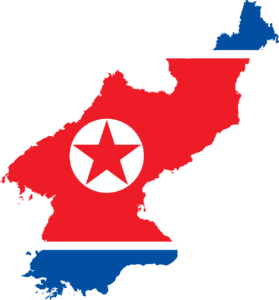New UN Security Council Sanctions and Current OFAC Sanctions on North Korea
On September 12th 2017, the Security Council passed, in a unanimous 15-0 vote, new economic sanctions against North Korea. These sanctions added an extra layer of international restrictions on the already isolated regime. The basis of the sanctions was drafted by the United States and after compromise with China and Russia were weakened just enough to pass through the Security Council.
United Nations Sanctions Against North Korea
 These new sanctions are a direct response to the recent escalation of tensions between Kim Jong-un’s government and South Korea and its allies. North Korea has ramped up nuclear missile testing in violation of UN Security Council Resolution 1718, which directed North Korea not to conduct nuclear tests, launch ballistic missiles, and end their nuclear program. Since then, North Korea has continuously ignored this resolution and continued its nuclear program, bringing on the most comprehensive international and U.S. sanctions.
These new sanctions are a direct response to the recent escalation of tensions between Kim Jong-un’s government and South Korea and its allies. North Korea has ramped up nuclear missile testing in violation of UN Security Council Resolution 1718, which directed North Korea not to conduct nuclear tests, launch ballistic missiles, and end their nuclear program. Since then, North Korea has continuously ignored this resolution and continued its nuclear program, bringing on the most comprehensive international and U.S. sanctions.
UN Security Council Resolutions 1718, 1874, 2087, 2094, 2270, 2321, and 2371 implemented stringent sanctions against North Korea. These sanctions included:
- Banning the sales of military supplies and luxury goods
- Enforcing inspections on suspect cargo ships
- Allowing for the disposal of cargo in relation to the delivery of military supplies
- Blocking North Korea’s access to the international financial system
- Prohibiting exports of coal, iron, gold, and several other metals
- Capping imports for North Korea of copper, nickel, zinc, and silver
- Terminating the increase in North Korean work permits in foreign countries
The latest vote on a security council resolution against North Korea requires member states to inspect ships coming from and going to North Korean ports. Sales of natural gas are now banned and refined petroleum exports are capped at two million barrels annually. Textile exports from North Korea are now also banned. Work authorization is not allowed to be granted to North Koreans unless required for humanitarian or denuclearization purposes.
OFAC Sanctions Against North Korea
E.O. 13466 was the first executive order that employed sanctions against North Korea under the authority of the Office of Foreign Asset Control (OFAC). This order was authorized under the International Emergency Economic Powers Act (IEEPA) and the National Emergencies Act (NEA). The order was issued by then President George W. Bush and continued to block the properties of North Korean persons who were already blocked by the Trading With the Enemy Act of 1917 (TWEA). Several other Executive Orders have followed to increase the level of sanctions enforced by OFAC against North Korea and several have used the United Nations Participation Act (UNPA) to derive their legal authority.
The following Executive Orders such as E.O 13551, 13687, and E.O. 13722 authorizes the Secretary of the Treasury, in consultation with the Secretary of State to block the property of broad categories of persons who export or import to and from North Korea, have any relation to the government of North Korea, assist their military, or further their human rights and civil rights violation in any way. These persons are listed in OFAC’s Specially Designated Nationals and Blocked Persons List (SDN List) which allows individuals and companies to screen potential business partners that have been designated by the U.S. government to be involved with or have furthered the prohibited activities of the North Korean government.
OFAC Lawyer and North Korea
Generally, U.S. persons are prohibited from dealing with North Korean persons and entities without an OFAC Specific License. General Licenses authorizing certain transactions are available but as usual are extremely narrow and limited in scope. Please consult with an OFAC lawyer before engaging any North Korean person or entity.
Disclaimer: Blog posts should not be relied upon as legal advice and are only provided for informational purposes. Information contained in blog posts may also become outdated with the passage of time as laws change and US foreign policy and national security objectives evolve.

